- Home
- Scott Mariani
The Martyr’s Curse Page 12
The Martyr’s Curse Read online
Page 12
It had been Luc Simon who’d once said to Ben, ‘Men like us are lone wolves.’ He hadn’t been talking about solitary lupine predators; he’d been talking about their dealings with women, and the sad plight of men whose difficult occupations and single-minded direction in life seemed to doom them to eternal bad luck and trouble when it came to relationships. Luc had been having marital troubles back in those days. Ben knew the feeling.
Lone wolf. He had never forgotten that conversation, and he was pretty sure that Luc would remember it, too.
Luc Simon was the one cop in the world Ben would turn to at a moment like this. If not for help, then for information. There was a fax number in tiny print at the foot of the card. Ben keyed it into the machine, pressed the button the woman had instructed him to press, and the technology went into action. There was some humming and clicking from the works, and then a message appeared on the digital readout to tell him his fax was winging its way to the recipient. He lifted the lid, pulled out the sheet of paper and folded it into his wallet. Gathered up his stuff, paid for the fax, exchanged a last smile with the nice young woman behind the desk and stepped back out into the sunshine.
He dumped the fingers and the stationery in a waste bin up the street.
Chapter Twenty-Two
Ben’s second task was to find a public phone situated in a discreet position well away from prying eyes and ears. It was a strategy he’d decided on during the rambling bus ride to Briançon. He couldn’t bear the idea of the dead monks rotting away up there on the mountain where nobody might find them for weeks, even months. And he didn’t want to use his newly acquired phone to make the call, because he didn’t want the regular cops to have the number. In Ben’s world, trust had strict limits.
The telephone box he found was on a quiet street corner, a good distance away from anything. Maybe the last proper phone box in France. He glanced up and around before he approached it, checking for CCTV cameras. Street surveillance had quadrupled in France over the last few years, and even though the country still had only a small fraction of the four million cameras spying on British citizens from every corner every day, the spread of the European police superstate dictated caution. Ben dialled 17, waited to be put through, and then in an altered accent and as briefly as possible he informed the switchboard operator about the multiple shooting at Chartreuse de la Sainte Vierge de Pelvoux. He hung up quickly and walked away, wondering how long it would be before a fleet of emergency vehicles screeched their way up the mountain road to find what he’d found earlier that day.
‘Fuck it,’ he muttered, and lit another cigarette as he walked. Slipping back into his old ways didn’t make him feel especially great about himself. The tobacco hit was headier than usual, because he hadn’t eaten a scrap since breakfast in the monastery refectory the day before. He still didn’t feel much like food, but now his body was telling him he needed to refuel before he fell down. Further down the street, he found a shady, half-empty little bar, where he took a corner table and ordered a half-baguette jambon beurre and a glass of red house wine. The first was just to keep him going, the second to settle his nerves. Just one glass, he promised himself. The sandwich, when it came, was heavily buttered and filled with thick-cut ham and Gruyère cheese. He tore into it, ripping chunks off and wolfing them down and realising how hungry he actually was. The wine was delicious.
As he ate, he took out the mobile phone, used it to go online and dial up a search engine to find out the value of gold bullion. What he found out was no less impressive than expected. Next, he clicked back into the phone’s list of contacts and retried each of the ten numbers he’d tried earlier. Same result as the first time. As before, he hung up on each in turn without leaving a message.
No word yet from Luc Simon. Ben wasn’t disappointed. He believed that the Frenchman would get back to him, but he knew it might take a while. Which left him time to ponder the evidence in front of him, and to plan his next move.
Ben finished the half baguette, washed it guiltily down with the last of the wine and then sat back and thought about explosives. More specifically, about shaped charges. He’d already established in his mind that whoever had blown the near-perfect five-foot circular hole through into the sealed chamber under the monastery had a deadly talent that must have been honed by years of experience. Military training? Possible. Likely, even. Which narrowed the field by some degree, but not far enough by any means to have a place to start looking.
Setting that aside, Ben pondered the chances of tracing the perpetrators via the source of the explosives themselves. He knew a number of ex-military guys who’d moved on to deal in the arms business, legally and otherwise. They were just a phone call away, and one or two of them might even have been happy to hear from him and to know that he hadn’t just vanished off the face of the earth after all.
But Ben was also very much aware that those same guys, for all their wealth of knowledge and insider contacts, wouldn’t tell him anything he didn’t already know. The fact was that explosives, and even the rarer sub-variety of shaped charges, could be obtained just about anywhere, by anyone. It wasn’t like a tank or a rocket launcher or a surface-to-air missile or an attack helicopter, any of which could potentially, with a little insistence and the right kind of persuasion, be traced back through a web of middlemen and dealers to whoever had paid hard cash for the thing. Explosives weren’t specialised, ultra-sought-after military equipment, commanding eye-watering rates from those willing to approach the go-to underworld guys who could supply them. Using them wasn’t the specific domain of high-level crooks or international soldiers of fortune. Even the most advanced and powerful shaped charges were widely and cheaply available: to the steel industry, for instance, to blow out blocked dies or cut girders. To the timber industry, to fell large trees or clear log-jams. Just as they were commonly used for demolition, quarrying and ice-breaking and blowing out post-holes in hard ground, by thousands and thousands of operators all over the world. Licensing was complex, not always strictly enforced, and open to all kinds of cash-in-hand, under-the-counter abuses.
In short, there would be no simple trail of breadcrumbs. Even assuming Ben could find a lead to follow, he could easily end up spending weeks chasing down a hundred avenues, kicking down a hundred doors, and getting precisely nowhere.
One thing was for sure: he wasn’t going to get very far at all without certain bare necessities. Money wasn’t a big problem – he still had plenty of cash, and when that ran out, the remainder of the Caisse d’Epargne bank account left over from his days of living in Normandy would last him for a while. He needed transport, which wasn’t a problem either; but the third of those bare necessities wasn’t such a simple matter to get hold of.
Unless you had the appropriate contacts. And it just happened that Ben had one of those, right here in Briançon.
He left the bar carrying his heavy bag on his shoulder and made his way on foot across town, retracing the route he’d taken by car as a passenger that morning until he arrived at the three-storey apartment building next to the bare-brick alleyway with the wheelie bins. He ran his finger up the list of names next to the door buzzers. Third from the top was the name O. Adeyemi, with an apartment number. He pressed the buzzer, and a few moments later a deep voice sounded out of the raspy speaker.
‘Yeah?’
‘Come to repay your lost bet,’ Ben said into the intercom.
There was a pause, followed a few seconds later by a click, and he pushed his way inside the building. He trudged up the stairs, reached the apartment and banged on the door. It opened, Omar filling the whole doorway.
The big Nigerian grinned another of his dazzling grins. ‘Hey, man. S’matter, van broke down again?’
‘Don’t you have a job to go to?’ Ben said.
‘Gentleman of leisure, bro,’ Omar said graciously, ushering him into the poky passage. The same aroma of strong coffee was wafting from the kitchen.
‘I’ll take a cup, if there’s
any going,’ Ben said.
‘Hey, Café Omar, always open for business. I’m honoured. You came all the way back just for that?’
‘Actually, I came to ask three more favours.’
‘Oh, yeah? Three?’
‘The first one’s just small, number two’s a little bigger, and number three’s a little bigger again.’
‘That’s a lot of favours, man,’ Omar said, showing Ben to the same chair he’d sat in before and pouring steaming black coffee into a mug. ‘Especially as I already saved your butt last night and this morning.’
‘Brothers in arms?’
Omar’s chair creaked as his giant bulk settled into it. He took a slurp of coffee, smacked his lips and raised a suspicious eyebrow. ‘Start with favour number one, and we’ll work our way up from there.’
‘Sounds fair. First, I’d like a shower.’
Omar ran his eye up and down Ben and gave a rumbling bass chuckle. ‘You need it, all right. Be my guest.’
‘Thanks. Now, ready for the big stuff?’
‘Try me,’ Omar said.
‘Favour number two, I need your FAMAS rifle, your Kalashnikov and every round of ammo you’ve got squirrelled away under the floorboards. Favour number three, I have to borrow your Hummer. I don’t know how long for, and I can’t absolutely guarantee that you’ll get it back in one piece.’
Omar’s eyes boggled for a moment. He began to roar with laughter and then stopped as he realised Ben was serious. ‘I want to help you, man, but—’
‘Let’s call those last two more of a trade,’ Ben said. He reached down to the bag at his feet, undid the buckles and flipped open the canvas flap. He hefted out one of the gold bars.
‘Take it,’ he said.
Omar took it. Even his muscle-bound arms sagged an inch under the weight. He turned the gold ingot over and over in his hands. Stared down at it bug-eyed and speechless for a long minute, then stared up at Ben. ‘Don’t fuck with me, man,’ he finally said in a low voice. ‘What is this?’
‘It’s not brass,’ Ben said. ‘That’s for sure.’
‘I’m not even gonna ask where it came from,’ Omar said.
‘Always a wise policy,’ Ben said.
‘Are you drunk?’
‘Never,’ Ben said.
‘I don’t want any trouble.’
‘You won’t get any,’ Ben said. ‘No comebacks, no strings attached. It’s yours. I’ve never met a bodybuilder who didn’t have a set of scales. Weigh it. My guess is seven and a half kilos. Twenty-four-carat gold is going for over thirty thousand euros a kilo, today’s price. You’ll lose a bit, because there’s no hallmark. But you’ll still do okay.’
Omar paused a moment to do the arithmetic, and said, ‘Holy shit.’
‘Now you’re a gentleman of leisure, for real. Don’t spend it all at once.’
‘Hold on, bro. When you said about maybe not bringing my Hummer back in one piece …’
‘Just in case,’ Ben said. ‘Thought I should warn you.’
‘You any idea what it takes to bust one of those things up? They’re indestructible.’
‘In my experience, nothing’s indestructible,’ Ben said. ‘But now you can afford to go out and buy three more. One other thing. If anyone should come around asking questions, you’ve only just realised the vehicle’s been stolen and you were about to report it, okay?’
‘Anyone, as in the cops?’
‘For your own protection,’ Ben said. ‘So, do we have a trade?’
Omar looked at him very carefully, very seriously, for another full minute as he decided. ‘I have a couple of big cases of ammo,’ he said.
‘I’ll take the lot,’ Ben said.
‘What are you gonna do, man?’
‘Nothing that will come back on you. That’s a promise.’
Omar nodded. He paused again, for fifteen long seconds. Ben could see the wheels turning in his head. Then Omar went to fetch the FAMAS, the Kalashnikov, the ammo cans and the keys to the Hummer.
Chapter Twenty-Three
Briançon was a pleasant, polite, civilised town. Far too much of all those things to attract the kind of people Ben needed to find next, and for the kind of further enquiries he needed to press on with. Pleasant, polite, civilised people couldn’t help him in his quest.
And so Ben had pictured a map in his head, with Briançon marking its imaginary centre, and started thinking of where he might begin looking for less pleasant people who could. Four hours’ drive to the south lay the deceptively named city of Nice, a place whose darker side Ben wasn’t unacquainted with. Once upon a time, its undisputed kingpins had been the Sicilian crime bosses, but nowadays the prostitution and drugs rackets were an open market to any number of ruthless and ambitious hoodlums. If you were looking for a particular class of low life, there were worse places to start turning over rocks and kicking down doors.
But then there was Marseille. About two hundred and fifty kilometres to the south-west on Ben’s mental map, just a little under three hours’ drive from the cosy tranquillity of Briançon. If Nice scored an approximate seven out of ten in the Sin City leagues, then Marseille was way off the scale. An erstwhile haven of sea and sun that had decomposed into a festering lair of organised crime and police corruption. Provence’s own answer to South Central LA, where the litter-swirled streets were pockmarked from repeated drive-by shootings; officially Europe’s most dangerous place to be a young person growing up, and a land of opportunity for the Milieu or French criminal underworld. The days of legendary gangsters like Marseille godfather Jacky ‘The Madman’ Imbert, glamorous figures who’d lived the dream rubbing shoulders with the likes of Alain Delon, were gone. They’d long since been displaced by cut-throat gangs of Corsicans, Turks, Maghrebis, Pieds-Noirs, Senegalese and ethnic Manoush and Yeniche gypsies, all continually disembowelling one another over rights to control arms and drug trafficking, the sex trade, illegal gambling, extortion and protection and murder rackets, money laundering and fraud, arson and theft and, finally but not least, kidnapping.
Human trafficking was the reason Ben had become familiar with the less salubrious districts of Marseille, back in the days when he’d called himself a ‘freelance crisis response consultant’. He didn’t suppose the place was any less of a sanctuary for scumbags than it had been then. In fact, he was fairly certain it was even worse than he remembered, and he had his reasons for thinking that way.
It was well known in certain circles that a fresh team of players had increasingly become established as the new-generation crime bosses of Marseille, and that was what interested him. Walking tall, like lions among the hyenas, the Russian mob now lorded it over the gang scene. Under their rule, the number of bloody turf wars and feud killings and execution-style assassinations had rocketed to unprecedented levels. The Russians had virtually uncontrolled access to a river of illicit weaponry coming out of Eastern Europe, as well as to trained men happy to make use of it. Many of their enforcers were battle-hardened ex-military, tough, beefy, crude and violent men recruited from former Soviet territories like Chechnya and Georgia, for whom the act of murder was so casual and human life so cheap that they scared the crap out of the rest of the Milieu gangs, whose territories they were snapping up one by one.
Nowhere else on Ben’s mental map, within a radius of two hundred and fifty kilometres, a circle ranging one hundred and ninety-six thousand square kilometres in area, would you find anything like such a high concentration of professionally trained and equipped criminals ready to rock ’n’ roll at the drop of a hat. Exactly the kind of people you could expect to carry out a military killing operation against a community of poor innocent monks who just happened to be sitting on a hoard of gold that maybe they didn’t even know about. Exactly the kind of people who might be looking to finance themselves and their organisation through an easy heist against unarmed, defenceless opponents.
Not to mention, exactly the kind of people you might also expect to find smoking Russian cigarettes
like the one that had been stubbed out on Père Antoine’s forehead. Ben had tried them once, didn’t much care for them. A particular and distinctive brand that had been manufactured in the Ukraine until 2005, and since then in Russia itself. Considered one of the country’s finer blends, the sophisticated choice of rich Russian society folks, and maybe rich Russian gangsters, too.
All of which made Marseille the top spot on Ben’s mental map. And which was exactly why, at this moment, he was barrelling south-westwards down the motorway towards Marseille in a gleaming dark H1 Hummer. Blasting through the hot afternoon with a cool wind roaring in through the wide-open windows, two hundred thousand euros’ worth of gold weighing down the passenger seat the other side of the massive transmission tunnel, and a couple of automatic rifles plus over five hundred rounds of ammunition stuffed in a holdall in its cavernous rear space. The Hummer was perfect for him. It was fast, it would go absolutely anywhere he wanted it to, and it was big enough to set up a mobile camp in if it came to it. No amount of civilianisation could completely smooth away its military origins. The thing was a battle wagon, aggressively functional in every way, and Ben was grimly at home in it. He settled back inside its armoured shell and kept his foot down and felt as if he was going to war.
The late afternoon was still hot when he came into Marseille. From a distance it was a beautiful city, framed by a backdrop of high country, rock and scrub wilderness that the French called la garrigue. Up close, you could see the decay anywhere you chose to spot it. Ben avoided the bustle of the centre and picked his way around the outskirts, navigating from memory to a place he’d been before and hadn’t ever been too eager to revisit. The area he was aiming for was a stretch of districts to the north of the city, a sprawling zone of neglected apartment blocks that had been knocked up cheaply and never knocked down, but should have been a long time ago. Isolated, almost self-contained, the area was like a city in its own right – one where the normal rules no longer applied.

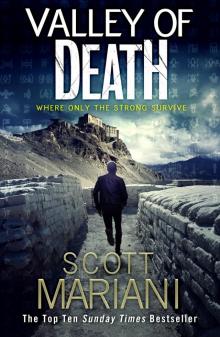 Valley of Death
Valley of Death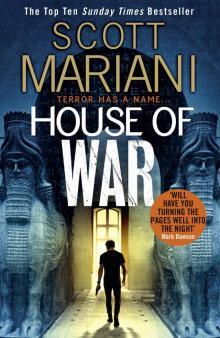 House of War
House of War The Pandemic Plot
The Pandemic Plot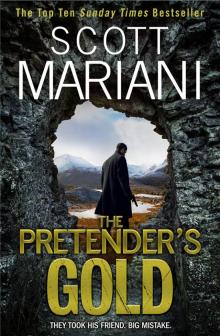 The Pretender's Gold
The Pretender's Gold The Demon Club
The Demon Club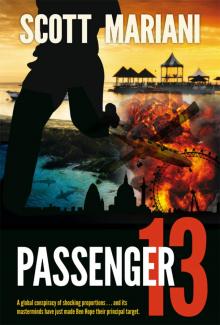 Passenger 13 (Ben Hope eBook originals)
Passenger 13 (Ben Hope eBook originals)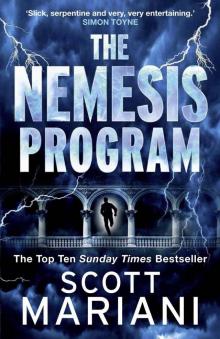 The Nemesis Program_Ben Hope
The Nemesis Program_Ben Hope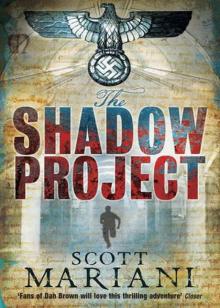 The Shadow Project
The Shadow Project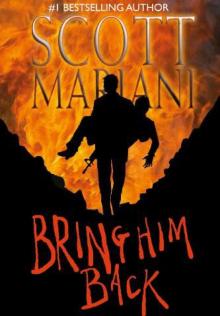 Bring Him Back
Bring Him Back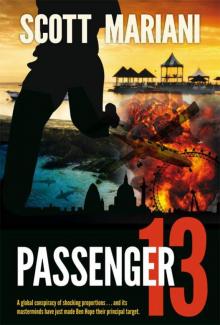 Passenger 13
Passenger 13 Sacred Sword (Ben Hope 7)
Sacred Sword (Ben Hope 7)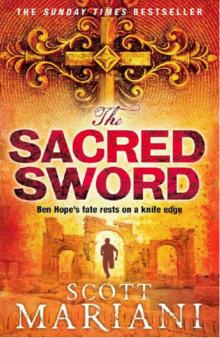 The Sacred Sword (Ben Hope 7)
The Sacred Sword (Ben Hope 7)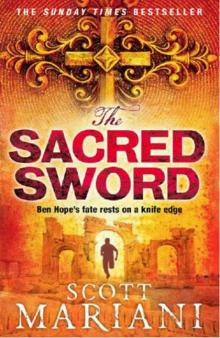 Sacred Sword
Sacred Sword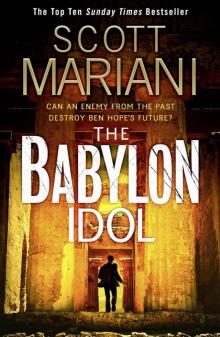 The Babylon Idol
The Babylon Idol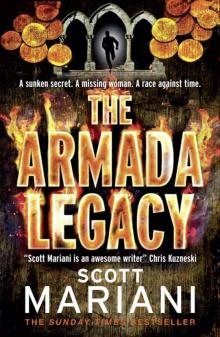 The Armada Legacy
The Armada Legacy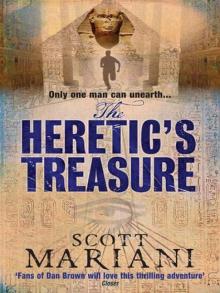 The Heretic's Treasure
The Heretic's Treasure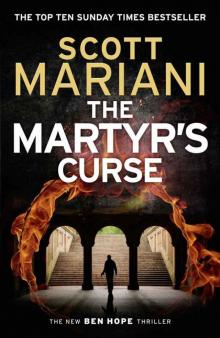 The Martyr’s Curse
The Martyr’s Curse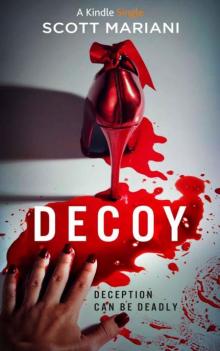 DECOY (Kindle Single)
DECOY (Kindle Single) The Bach Manuscript
The Bach Manuscript The Alchemist's Secret
The Alchemist's Secret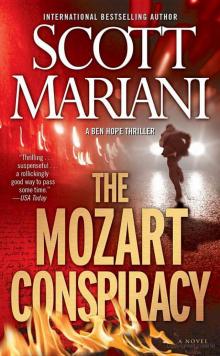 The Mozart Conspiracy: A Novel bh-2
The Mozart Conspiracy: A Novel bh-2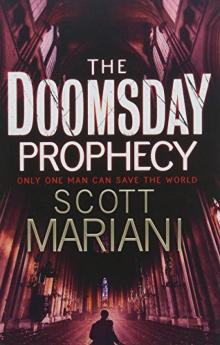 The Doomsday Prophecy
The Doomsday Prophecy The Ben Hope Collection: 6 BOOK SET
The Ben Hope Collection: 6 BOOK SET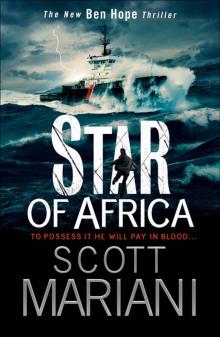 Star of Africa (Ben Hope, Book 13)
Star of Africa (Ben Hope, Book 13)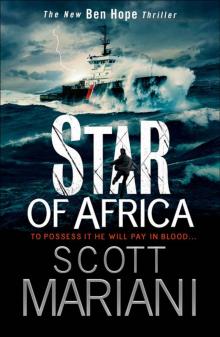 Star of Africa
Star of Africa The Forgotten Holocaust (Ben Hope, Book 10)
The Forgotten Holocaust (Ben Hope, Book 10)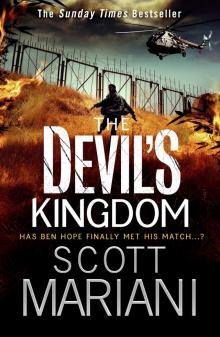 The Devil's Kingdom
The Devil's Kingdom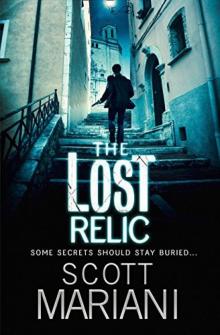 The Lost Relic
The Lost Relic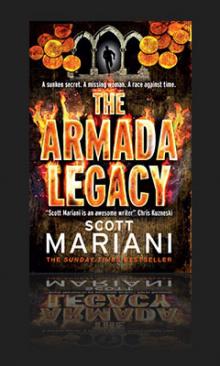 The Armada Legacy bh-8
The Armada Legacy bh-8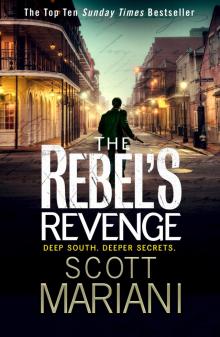 The Rebel's Revenge
The Rebel's Revenge The Forgotten Holocaust
The Forgotten Holocaust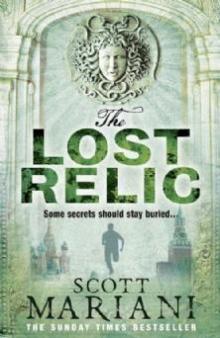 The Lost Relic bh-6
The Lost Relic bh-6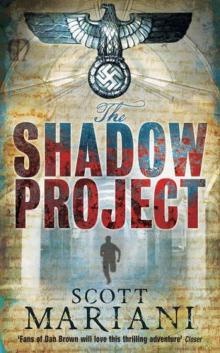 Ben Hope 05 - The Shadow Project
Ben Hope 05 - The Shadow Project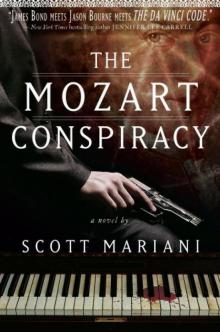 The Mozart Conspiracy
The Mozart Conspiracy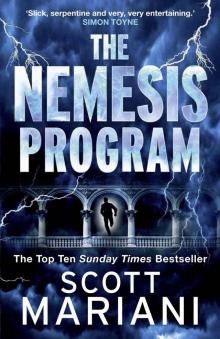 The Nemesis Program
The Nemesis Program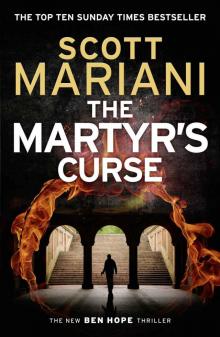 The Martyr’s Curse (Ben Hope, Book 11)
The Martyr’s Curse (Ben Hope, Book 11) THE TUNNEL: A Ben Hope Story
THE TUNNEL: A Ben Hope Story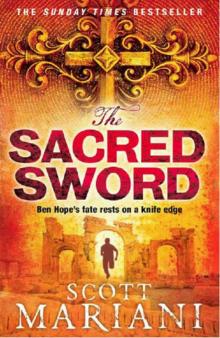 The Sacred Sword bh-7
The Sacred Sword bh-7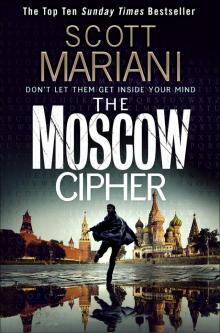 The Moscow Cipher
The Moscow Cipher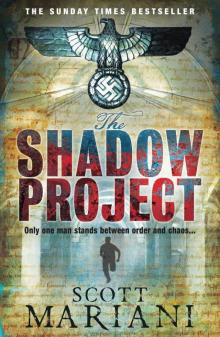 The Shadow Project bh-5
The Shadow Project bh-5 The Tunnel
The Tunnel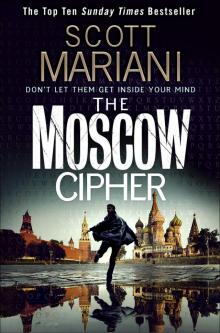 The Moscow Cipher (Ben Hope, Book 17)
The Moscow Cipher (Ben Hope, Book 17)